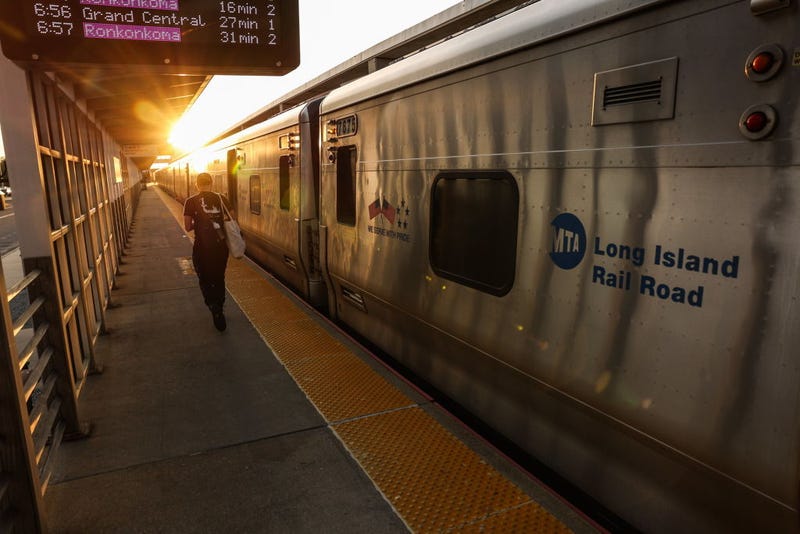
LONG ISLAND, N.Y. (1010 WINS) — Seven current or former Long Island Rail Road employees who were assaulted while in the performance of their jobs have filed lawsuits against the MTA, alleging that “the railroad failed in its duty to provide the workers with a safe workplace,” according to the plaintiffs’ attorney Phil Dinhofer.
The lawsuits were filed by six train conductors and one station cleaner, who witnessed a conductor being assaulted at a station and attempted to assist, between July 2022 and July 2024 in the U.S. District Court in Central Islip
Each of the plaintiffs was injured, with assaults ranging from “the commonplace punch in the face or the side of the head to sexual assaults,” Dinhofer told 1010 WINS.
In an explanation of the injuries he pointed to one of his clients who was punched in the head and suffered a traumatic brain injury. The victim is no longer capable of working.
According to Dinhofer, the common thread between the assaults is that the workers were seeking fare payment. He said that collecting payment in this way, as opposed to requiring payment before entering the train, puts transit employees at risk.
“Maybe these are situations, if you’re going to have them collecting fares on the trains … where there should be a police officer on each train, maybe the conductors should be given walkie-talkies so that they can communicate with each other and call for help if they need it, or a panic button where they can summon police aid,” Dinhofer said.
LIRR conductors in 2023 issued about 160,000 invoices to passengers who were unable to pay their fare, an increase of 60% from the year before, according to MTA data obtained by Newsday.
MTA spokesperson Aaron Donovan said in a statement to 1010 WINS that employee safety is the agency’s top priority.
“The MTA will never compromise on employee safety. The agency has extensive safety protocols designed to protect employees and customers during active service in our 24/7 rail system,” he said. “If any employee finds themselves in a situation where they feel unsafe, they are encouraged to contact the MTA Police for assistance.”
Dinhofer thinks that calling for aid is not an effective strategy of keeping workers safe.
“The problem is they call the police here in these instances, some of them, and they’re told, ‘OK, the police officer will meet you when you get to Jamaica,’” he said. “Meanwhile they stopped at several different stations on the way and the assailant gets off the train along the way.”
According to MTA data acquired by Dinhofer, assaults on uniformed train crew have gone up 85% over the years.
“People think they’re isolated, there are no police on the trains, they can get away with it,” he said. “And I think the MTA, having studied the issue, ought to take a bold step and do something already before somebody really gets tragically hurt.”
Ginny Kennan contributed to this report.
